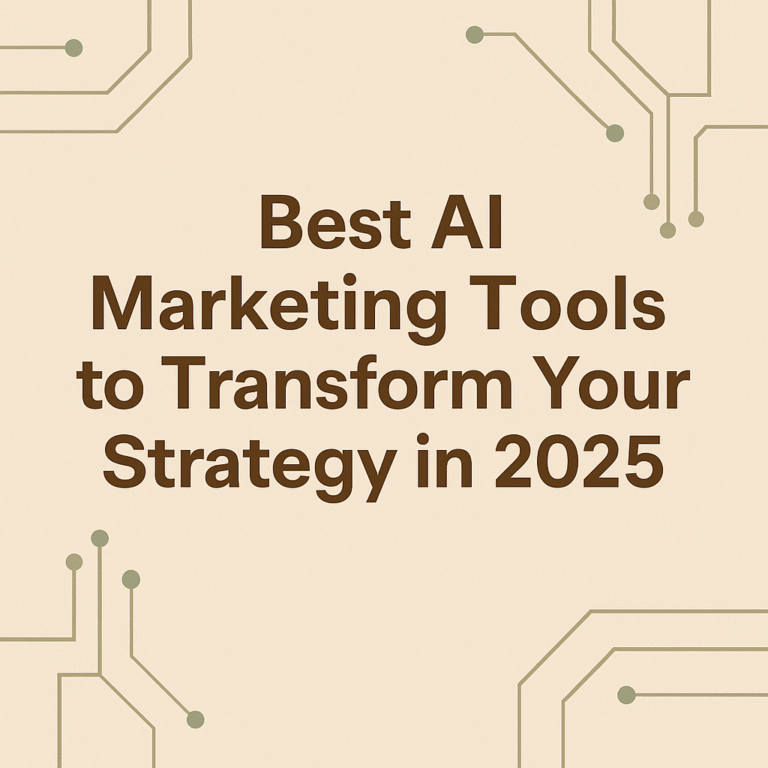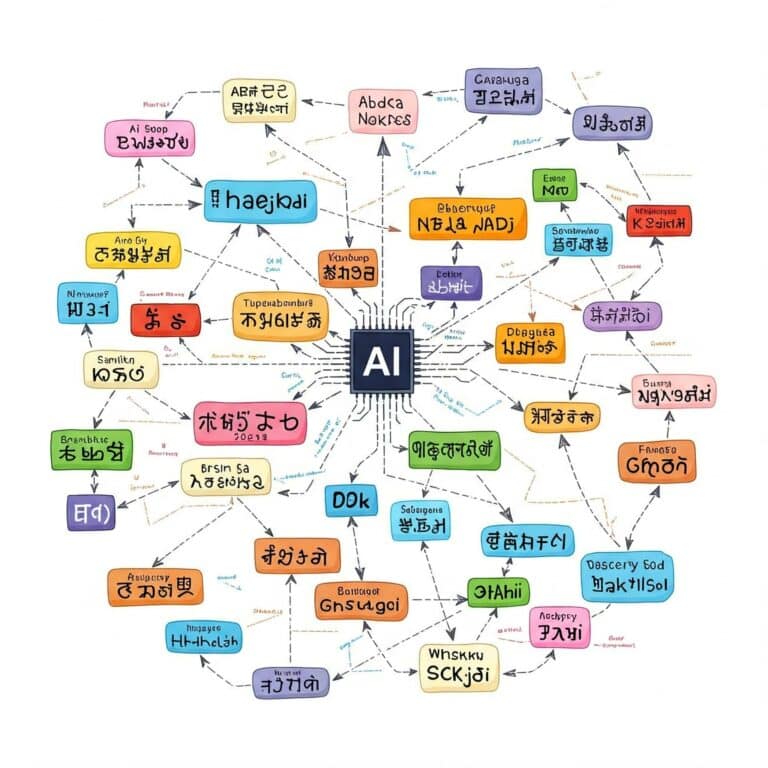In today’s digital landscape, search engines have evolved into complex platforms that not only rank content but also interpret search intent and user behavior. Gone are the days when traditional keyword research was enough. Content creators now rely on AI keyword research tools and ai-powered tools to generate a list of keywords that resonate with their target audience. With a focus on search engine optimization and content marketing, the power of AI is undeniable—it helps you find the best keywords, related keywords, and even long-tail keywords that can drive organic traffic and enhance your website projects.
Understanding the Basics of Keywords
Keywords are the building blocks of any SEO strategy. They serve as the bridge between what potential customers search for and the content you create. From a seed keyword that sparks initial ideas to a full list of keywords and keyword suggestions, understanding the basics is essential.
- Short-Tail vs. Long-Tail Keywords:
Short-tail keywords are broad and general, often consisting of one or two words. In contrast, long-tail keywords—appearing at least five times in this article—are more specific phrases that cater to niche queries. Using long-tail keywords in your content creation not only improves your search engine optimization efforts but also targets the right audience by reflecting specific search intent.
The Importance of Long-Tail Keywords
Long-tail keywords have become indispensable in today’s content strategy. They help pinpoint the right audience and potential customers by focusing on search behavior and providing context to search engine results.
- Why They Matter:
Long-tail keywords, also known as long tail keywords, often have lower keyword difficulty and are less competitive, making them ideal for ranking on the first page of Google search results. Their specificity means that when a user inputs these search terms, the search intent is clear—leading to higher conversion rates and better user experience. - Benefits for Content Creation:
Incorporating long-tail keywords into blog posts and new content enables content creators to address niche topics and attract high-value traffic. Moreover, long-tail keywords, when combined with a strong list of related keywords and keyword suggestions, form a competitive edge in the crowded digital market.
Traditional Keyword Research vs. AI-Powered Keyword Research
While traditional keyword research methods provided a starting point, they often relied on static data and manual processes. Traditional keyword research can be time-consuming and limited in scope, failing to capture the nuances of search intent and the vast amounts of data available today.
- Limitations of Traditional Methods:
Relying solely on traditional keyword research means missing out on the dynamic nature of search engine optimization. Without tools like Google Keyword Planner and advanced ai keyword research tools, identifying the best keywords and maintaining a current list of keywords becomes challenging. - The AI Revolution:
With generative AI and ai-powered keyword research tools, the keyword research process has become more efficient. These tools leverage natural language processing and advanced algorithms to analyze search behavior, identify related keywords, and provide keyword suggestions that reflect user intent. The power of AI transforms the process, ensuring that you are always equipped with the most relevant and specific keywords to drive your content strategy.
Key Components of Effective Keyword Research
A successful keyword research process hinges on several core components:
- Seed Keyword and List of Keywords:
Every comprehensive SEO strategy starts with a seed keyword. From there, you can generate a full keyword list using free keyword research tools and ai keyword generators. This list forms the basis for all further analysis. - Keyword Suggestions and Keyword Clusters:
Effective keyword research involves identifying keyword suggestions and grouping them into clusters. Keyword clusters and topic clusters help content creators organize related keywords, ensuring that all variations and similar keywords are addressed. This approach not only refines your content strategy but also caters to both search intent and user intent. - Understanding Keyword Difficulty:
Evaluating the keyword difficulty and monthly search volume is crucial. These metrics provide insights into how competitive a keyword is and whether it has high search volume. This data, combined with SERP analysis and SERP features, guides you in selecting valuable keywords for your content.
Leveraging AI Keyword Research Tools
AI keyword research tools are transforming how we approach keyword discovery. These powerful tools are designed to analyze vast amounts of data and identify patterns that would be nearly impossible to detect manually.
- Popular AI-Powered Tools:
Tools such as the Google Keyword Planner, ai keyword generator, and free ai keyword research tool are among the best ways to kick-start your keyword research process. They offer a user-friendly interface that simplifies the search for high-value keywords, keyword clusters, and the most relevant keywords. - Advanced Features and Additional Benefits:
Many ai keyword research tools come with advanced algorithms and additional features that provide keyword suggestions, identify similar keywords, and even perform SERP analysis. These features ensure that you’re using the right keywords to reach the right audience. In essence, using these tools gives you a competitive edge in content marketing and seo strategy.
Uncovering Hidden Opportunities with Advanced AI
The true power of AI lies in its ability to unearth hidden opportunities that traditional keyword research might miss. AI-powered keyword research tools harness vast amounts of data to reveal specific keywords that are valuable yet underutilized.
- Identifying Niche Markets:
By analyzing search behavior and user intent, AI can identify niche markets where potential customers are actively searching for specific keywords. This insight allows content creators to focus on long-tail keywords that capture a targeted audience, leading to better organic traffic and improved search engine results. - Discovering Valuable Keywords:
Advanced algorithms and ai-generated keywords help pinpoint high-value keywords with low competition. These insights, including keyword difficulty and monthly search volume, ensure that you have the best tools to boost your seo efforts and secure top search rankings on Google search.
User Intent and Search Intent: The Heart of Effective Keyword Research
Understanding user intent and search intent is paramount in creating content that resonates with your audience. With the help of natural language processing and ai-powered keyword research tools, you can better interpret search terms and predict what your target audience is looking for.
- Bridging the Gap:
When users enter search terms, they have a clear intent—whether it’s to find information, make a purchase, or solve a problem. Matching this search intent with the right keywords ensures that your content aligns perfectly with user intent. By using advanced AI algorithms, you can generate specific keywords that speak directly to your target audience, making your content more engaging and effective. - Leveraging Natural Language:
AI tools analyze natural language to determine the nuances in search behavior, ensuring that your keyword list includes both popular keywords and different keywords that capture subtle variations in user intent. This approach not only refines your content strategy but also improves overall user experience.
Building a Content Strategy Around Your Keywords
Once you have identified your seed keyword and built a comprehensive list of keywords—ranging from long-tail keywords to topic clusters—the next step is to integrate them into a solid content strategy.
- Content Creation and Marketing:
Develop blog posts and new content that addresses the specific keywords and keyword clusters you have identified. Use the best keywords to craft compelling content that meets search engine results criteria. This strategy not only drives organic traffic but also ensures that you reach your target audience effectively. - Step-by-Step Guide to Success:
Start with a seed keyword and use free keyword research tools to generate a list of related keyword ideas. Then, organize these ideas into keyword clusters and topic clusters. This step-by-step guide will help you structure your content strategy, allowing you to address user intent, satisfy search intent, and ultimately improve your search rankings.
Implementing Keyword Clusters for a Competitive Edge
Keyword clusters are groups of similar keywords that share a common theme. Organizing your keyword research into clusters can make your content creation process more strategic and help you target the right audience with precision.
- Grouping Similar Keywords:
By forming keyword clusters, you can generate a comprehensive list of related keywords. This approach not only simplifies your keyword research process but also enhances the effectiveness of your content strategy by addressing different facets of search intent. - Building Topic Clusters:
Topic clusters take the concept further by grouping different keywords into broader themes. This strategy ensures that every piece of new content contributes to an overarching narrative that resonates with potential customers and drives organic traffic.
Enhancing Your SEO Strategy with AI
Integrating AI into your SEO strategy is no longer optional—it’s a necessity. The advanced capabilities of AI-powered keyword research tools provide valuable insights that traditional keyword research simply cannot match.
- Combining Traditional and AI Approaches:
While traditional keyword research has its merits, combining it with AI-generated keywords and modern seo tools creates a robust, data-driven approach. This blend helps you discover the best keywords, optimize for keyword difficulty, and target the right audience with precision. - Utilizing the Best AI Tools:
Leverage the latest technology by using tools like the ai keyword generator and free ai keyword research tool. These best practices not only offer a user-friendly interface but also provide additional features such as keyword magic tool, advanced algorithms, and comprehensive SERP analysis to ensure the best results for your seo efforts.
Deep Dive into Keyword Tools and Features
To truly excel in search engine optimization and content strategy, it’s important to explore the advanced features offered by modern keyword research tools.
- Key Metrics and Features:
Look for tools that provide data on monthly search volume, keyword difficulty, and high search volume insights. Features like SERP features, keyword difficulty analysis, and monthly search volume help you gauge the competition and identify high-value keywords. - Popular Tools in the Market:
Notable tools include the Google Keyword Planner, which remains a powerful tool for identifying valuable keywords, and various free keyword research tools that leverage generative ai to produce in-depth keyword research. These tools are indispensable for content creators looking to get a competitive edge in search engine results.
Case Studies: Real-World Success with AI in Keyword Research
Many businesses have transformed their seo efforts by embracing the power of ai in keyword research. Here are a couple of illustrative examples:
- E-commerce Transformation:
An online retailer used ai-powered tools to analyze search behavior and identify long-tail keywords that their target audience was actively searching for. By integrating these specific keywords into their content strategy and using advanced features like keyword clusters and list of related keyword ideas, they saw a dramatic increase in organic traffic and search engine results. Their seo strategy, driven by effective keyword research, allowed them to rank on the first page of Google search and connect with potential customers. - Tech Startup Success:
A tech startup leveraged an ai keyword tool along with traditional keyword research to generate a comprehensive list of keywords, including both popular keywords and long tail keywords. By focusing on user intent and using natural language to interpret search terms, the startup was able to identify keyword opportunities that improved their search rankings and drove significant organic traffic to their website projects.
Step-by-Step Guide to Using AI for Keyword Research
Here’s a practical, step-by-step guide to ensure you get the most out of your keyword research efforts:
- Begin with a Seed Keyword:
Identify a strong focus keyword or seed keyword that reflects your content’s core topic. - Generate a List of Keywords:
Use free ai keyword research tools and an ai keyword generator to create a comprehensive list of keywords. Include related keywords, long-tail keywords, and different keywords that reflect both search intent and user intent. - Group Keywords into Clusters:
Organize your keyword suggestions into keyword clusters and topic clusters. This grouping helps in targeting specific search terms and similar keywords that your target audience might use. - Analyze Keyword Difficulty and Monthly Search Volume:
Leverage seo tools and in-depth keyword research features to assess the competitiveness of your chosen keywords. Look at keyword difficulty metrics and monthly search volume to ensure you’re targeting the best keywords. - Refine Your Keyword List:
Eliminate duplicate or irrelevant search terms, ensuring you retain valuable keywords that match both user intent and search intent. This refined keyword list will serve as a starting point for your content strategy. - Implement Keywords in Your Content Strategy:
Use your finalized list of keywords to create engaging blog posts, new content, and website projects that speak directly to your target audience. Focus on content creation that aligns with the latest technology and the power of AI in keyword research. - Monitor and Update Regularly:
SEO is an ongoing process. Continually use tools like Google Keyword Planner and ai-powered keyword research tool to track keyword performance, update your keyword clusters, and stay ahead of evolving search engine results.
Integrating AI into Your SEO Strategy
Implementing AI into your overall SEO strategy is the best way to remain competitive in an ever-changing digital landscape.
- Adopting Advanced AI Tools:
With the rise of generative ai and advanced algorithms, using ai-powered tools such as an ai keyword tool and free ai keyword research tool is now essential. These tools analyze vast amounts of data to provide keyword suggestions, assess keyword difficulty, and identify high-value keywords—all of which are crucial for driving organic traffic and enhancing search engine results. - Building a Seamless Workflow:
Incorporate these powerful tools into your existing content strategy and seo efforts. Whether you’re managing a google ads account or launching new content projects, ensure that your approach to keyword research is both data-driven and user-friendly. This integration will help you connect with the right audience and achieve the best results in search rankings.
Conclusion: AI Keyword Research
The landscape of keyword research is undergoing a transformation powered by artificial intelligence. Gone are the days of solely relying on traditional keyword research—today’s effective keyword research process blends the best of both worlds, combining human intuition with the power of AI.
By leveraging ai keyword research tools, advanced algorithms, and a comprehensive list of both long-tail keywords and related keywords, content creators and digital marketers can unlock hidden opportunities, attract potential customers, and secure top positions in search engine results. Embrace the latest technology, and let the power of ai lead your seo strategy to new heights.






